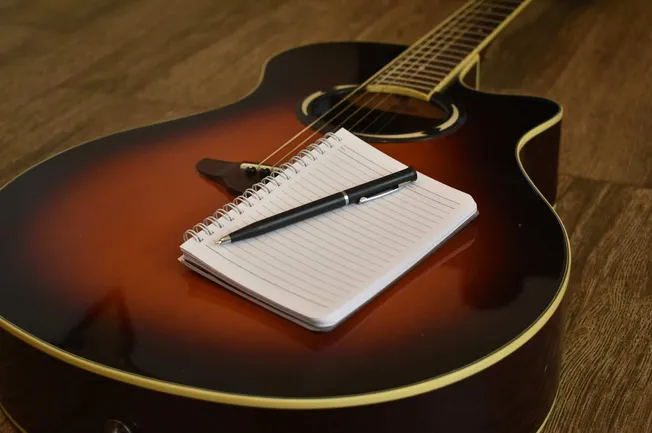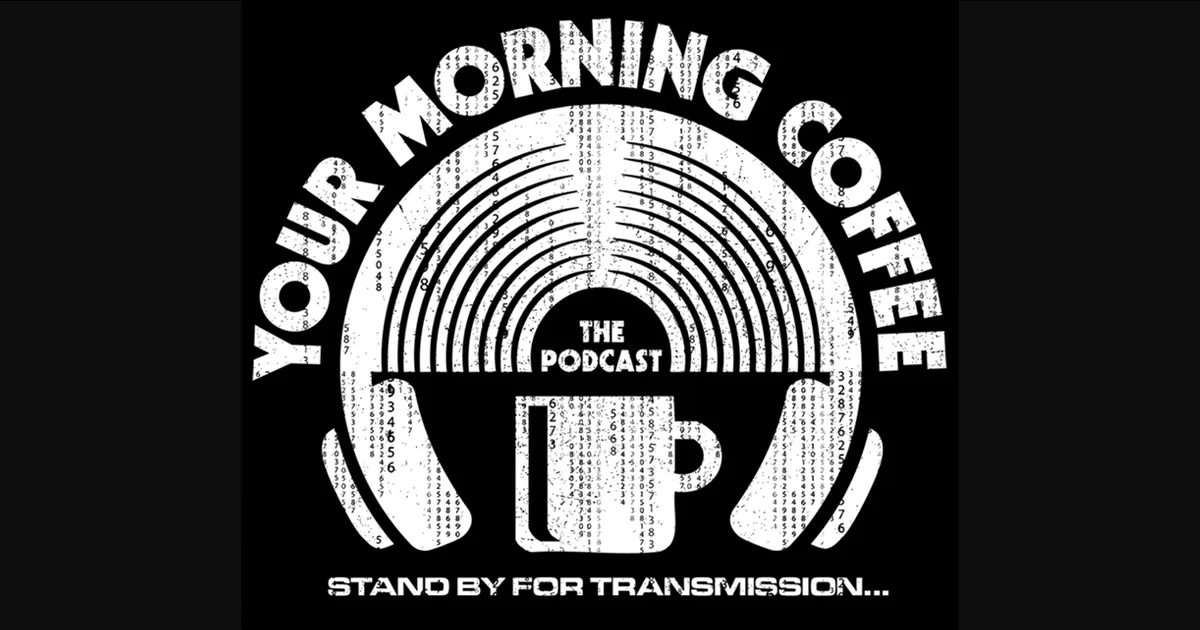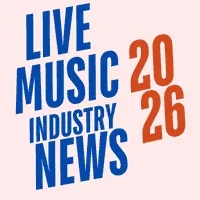Song and album challenges, song contests, and battle of the bands are great opportunities to get your music heard — and they often get covered by the press and media.
By Randy Chertkow and Jason Feehan from the Disc Makers Blog.
Song and album challenges, music contests, and reaching the charts are all great ways to get the public, media, and press interested and listening to your music, and there are many types of song challenges and contests you can participate in throughout the year. And if you like contests, there are multiple types you can participate in at a national and international level. In this installment of our “get heard and seen” series, we’ve got tips for how you can participate and get your music noticed.

Song and album challenges
There are multiple songwriting and album production challenges that run through the year. These are organized events that help motivate you to create and record a brand new song or an entire album’s worth of songs in a set amount of time. Two well-known challenges start in February: Record Production Month (RPM) Challenge and February Album Writing Month (FAWM) (check out “Take the challenge: Produce an album this February!” to learn more).
In November, you can participate in the National Solo Album Month. All of these ask you to produce an entire album within a month — and you “win” by finishing and sharing what you created with others. These challenges are a great motivator to create new, original music and challenge your creativity. If you want to get challenged throughout the year, you can participate in the weekly Songfight challenge, where fans vote on that week’s “best” song.
Songwriting contests and battle of the bands
There are a ton of songwriting contests and battle-of-the-band competitions to which you can apply and participate in all over the world. Winners of these contests and competitions often get good publicity and attention. To find the right one for you and your music, check out the list of songwriting contests at Muse’s Muse as well as ASCAPand others.
Awards and award shows
There are award shows for every genre of music, as well as many other categories that you might be eligible for. This includes awards for particular regions, cities, or localities; awards for artists who play at certain venues; awards for artists who write about particular topics; and even awards for the artists themselves. Awards are so diverse that there’s no one place to find them. To find some that might work for you, start by listing every category you could qualify for, and then perform an Internet search using the keywords “awards,” “musicians,” “music artists,” etc. If you end up being nominated or winning, you can use this accomplishment to bolster your bio and background, include it in your press/media kits, and leverage it as a great reason to get more coverage for your music.
Music charts
Besides Billboard, there are top charts for every genre and classification of music. Some are sales-based and others are associated with independent agencies. Research the charts available for your music to see if you can game the sales system to win or influence the critics (that’s what labels usually do). The more focused the niche, the easier it is for you to be on those charts. If you’re able to do this, the prestige of being “charted” can get you heard and also boost press/media coverage in the future.
Prep steps
Before you begin targeting and participating in these opportunities, you’ll want the following at-the-ready:
- Your home recording studio. If you decide to participate in an album or songwriting challenge, having your home studio set up to record with just a simple press of a button or two is key. Having it at-the-ready will make it easier for you to complete these challenges on time rather than spending time trying to get your mics to work.
- MP3s and WAVs. For the contests that need you to send in your music, you’ll need high-quality, mastered, high-bitrate, release-ready MP3s and WAVs of your music ready to send. Note that some contests might have specific format requirements, so be prepared to create those as well, if necessary.
- Bio and picture. Have a short bio, picture, and background info ready to go, as some of the places you’ll be submitting will ask for a description of your background and music.
- Simple tracking system (spreadsheet). You’ll need to keep track of who, where, and when you send your music and any supporting material (press/media materials such as a fact sheet or bio). A simple spreadsheet, like Google Sheets, works fine (and it’s free).
How to make money
Most of the challenges are free to participate in and don’t pay money to winners. When it comes to contests, some have prize money, but many cost money to apply and participate.
Because some of these opportunities, such as the songwriting contests, can get you radio and streaming play, this can make you money in the form of royalties. If you haven’t signed up for royalties, get this done before you enter so you can get paid. In fact, before you start any music promotion campaign, make sure the music you submit is registered properly for all royalties available to you.
For more detailed info about how royalties work and the 14 registrations you should do to protect your music and ensure you get all the money that’s owed you, see the Licensing and Royalties chapter of our book, Making Money With Music.
How to get played
Once you have royalties set up and have your music and bio ready to go, here’s how you can get played on each of these types of commercial radio outlets.
- Make a list of target places to submit to. One shortcut for finding opportunities like these is to use a service like “The Indie Bible” which contains lists of contests, awards, and challenges as well as other places to get heard. That said, each of these opportunities have some particulars you should be aware of before you submit.
- Challenges. These are surprisingly easy to participate in, since they are mostly for fun. Create a profile on the site and start writing songs, producing music, and sharing the results with others on the site. We’ve found these challenges to have great musician communities with their own message boards and social networking features. Many artists might be in your local area, which can create new networking connections and other opportunities. Note that challenges often get radio and the media’s attention as well. To get this, many of these challenge sites have jukeboxes or submission mechanisms to share your music on the site and help you get heard and noticed. This is worth your time, as we found out a few years ago. By posting a song to a jukebox and saying we were interested in getting it heard, we not only got people rating our music, it ultimately got our song played on National Public Radio — something that would never have happened if we didn’t participate.
- Songwriting contests and battle of the bands. Contests and battles all have submission guidelines which you’ll want to carefully follow so you’re not ruled out before you even get started. Take your time to do this right. More important than anything, make sure that you and your music are a good fit for the contest. Some have submission fees, and a heavy metal band should probably skip a folk music contest.
- Awards and award shows. The methods to get nominated for awards are as diverse as the number of awards out there. Some have submission guidelines that you’ll need to read and follow. Others might have eligibility requirements that you can meet, such as living in a certain region, or even just having a website. Once you know what awards you want to shoot for, make sure you meet the criteria so you can qualify.
- Music charts.Research the charts available for your music to see how they calculate the chart. You might be able to game the system by getting all your fans to buy your music on a specific day or stream a track when it can make a difference for charting. The more focused the niche, the easier it may be for you to get charted. This prestige can be leveraged to get you more press/media coverage in the future, so it’s worth it to try to coordinate your fans.
Participate in all the challenges, contests, and charts on your targeted list
Once you’ve done your research, completed your target list, and updated your spreadsheet, you’re ready to reach out or participate. Be sure to follow submission instructions, since bypassing their process or not providing something could wind up losing you the opportunity.
After you apply, have fun taking part in these opportunities and be sure to promote your participation with your fans. For example, if you participate in a song or album challenge, use this to build interest with your fanbase. They might get excited seeing you produce an album in real time, for example. One year, we chose to stream ourselves in the studio writing and recording songs for a challenge and chatted with fans and other challengers. For any of these opportunities, if there are forums or other fan-engagement mechanisms, be sure to participate and share your music and get heard. These can get you new listeners and new fans. Also, for people who aren’t fans yet, your bios alone can lead to people signing up as subscribers to your channels, social media, and even patronage.
After finishing, use any “wins” to get more media attention
If you win any of these challenges, contests, or get charted, make sure you let the press/media know. A win — even if it’s just completing an album in a month — is a great trigger to start a media campaign.
What to do if you win
If you win a challenge, contest, or get charted, make sure you do the following:
- Share on social media. Share the news with your fans on social media and let them re-share it to their followers. You should do this across multiple messages, not just one, because a win is worth talking about.
- Ladder up and out. Publicize it and use your success as a reason to reach out to outlets who haven’t covered you yet. It’s proof that people like your music. Also, use it as a trigger to reach out to open new opportunities — a win can lead to interviews, blog coverage, and even radio play. Create search alerts with your artist name and the name of the songs you submit since you never know where you might get mentioned. You can do this with services like Google Alerts.





